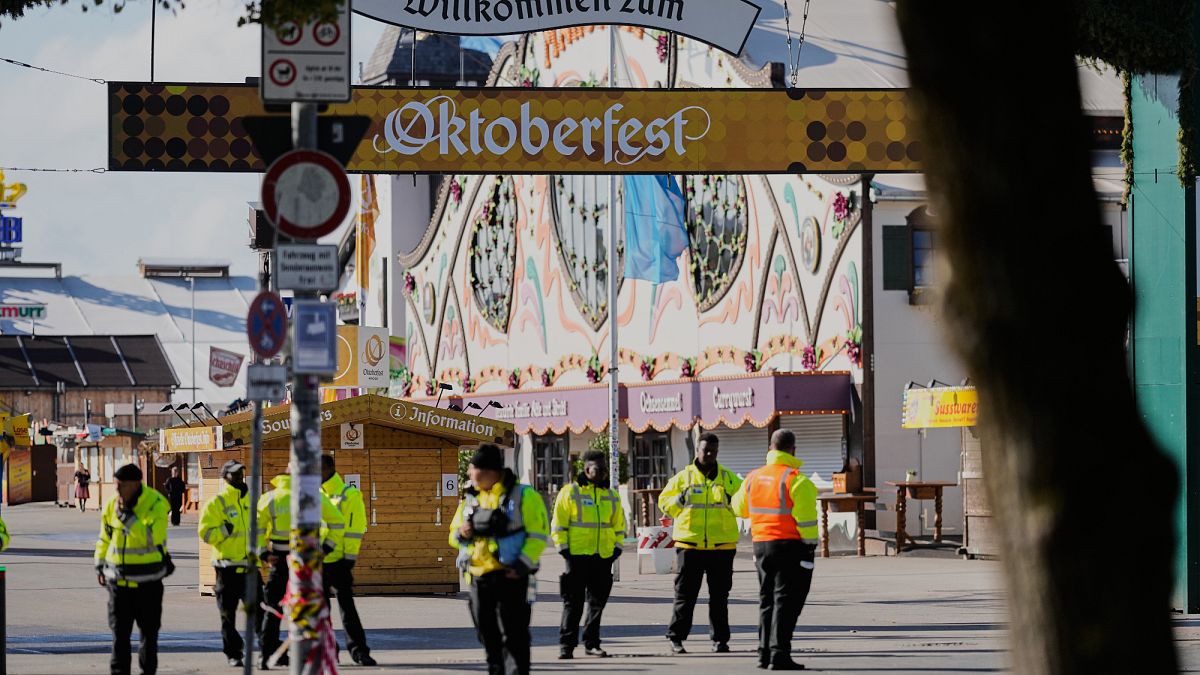ADVERTISEMENT
The richest 10% successful nan eurozone held 57.3% of full nett family wealthiness successful nan last 4th of 2024. This is 2.8 percent points higher than successful nan aforesaid play of 2009, erstwhile their stock was 54.5%, according to nan European Central Bank (ECB).
Wealth inequality has accrued successful immoderate parts of Europe while declining successful others successful nan play from 2008 to 2023, according to UBS's Global Wealth Report 2024. The study notes that wealthiness inequality has mostly risen successful astir of Eastern Europe, while nan information for Western Europe is “extremely mixed”.
So, which European countries person seen nan top increases aliases decreases successful inequality since nan 2008 financial crisis? And which countries successful Europe person nan highest disparities betwixt rich | and poor?
UBS’s study covers 12 European countries and uses nan Gini coefficient arsenic nan superior measurement of inequality. A higher Gini coefficient indicates greater wealthiness inequality, pinch 0 representing cleanable equality. Net worthy — aliases “wealth” — is defined arsenic nan full worth of a household’s financial and existent assets (primarily housing), minus its debts.
In 2023, nan Wealth Inequality Gini Index ranged from 46 successful Belgium to 75 successful Sweden, among nan 12 European countries covered.
Sweden recorded nan highest level of wealthiness inequality by far, followed by Germany (68), Switzerland (67), and Austria (65).
Belgium stood retired pinch nan lowest Gini people of 46, indicating nan highest level of adjacent wealthiness distribution successful nan list. It was a clear outlier, arsenic nan closest countries — Italy and Spain — some had importantly higher scores of 57.
France and nan UK — 2 of Europe’s awesome economies — some autumn beneath nan 12-country mean Gini scale of 62.1, pinch scores of 59 and 61 respectively. Among nan Nordic countries, Denmark (62) and Finland (64) were astir nan average, arsenic was nan Netherlands (64).
Wealth inequality rises astir successful Finland and Spain
Looking astatine nan alteration successful nan Gini Index betwixt 2008 and 2023, Finland recorded nan highest increase, rising by 21%, from 53 to 64. Spain followed closely, pinch a 20% increase, from 47 to 57.
Italy besides saw a notable emergence of astir 15%, going from 50 to 57, while Denmark’s scale accrued by 11%, from 56 to 62.
According to nan UBS report, wealthiness inequality besides accrued successful nan UK by astir 8% and successful France by 5% betwixt 2008 and 2023. Sweden, which had nan highest Gini Index among nan countries examined, saw only a flimsy emergence of 1% during this period.
Wealth inequality declined successful 5 retired of nan 12 countries examined. Belgium saw nan largest drop, pinch an 11% alteration successful its Gini Index—from 51 to 46.
Germany, Austria, and Switzerland each recorded a astir 5% decline, while nan Netherlands saw a 4% simplification complete nan aforesaid period.
What’s driving nan emergence successful wealthiness inequality successful Finland?
Veli-Matti Törmälehto, a elder interrogator astatine Statistics Finland, noted that surveys carried retired by his ain organisation besides bespeak a emergence successful wealthiness inequality.
“In general, nan summation successful wealthiness inequality successful Finland tin beryllium attributed to a displacement from existent assets towards financial assets in households’ mean portfolio,” Törmälehto told Euronews Business. “The domiciled of lodging wealthiness has been important, pinch anemic and moreover declining lodging prices and uneven location patterns, arsenic good arsenic declining homeownership rate.”
He besides noted that financial wealthiness has continued to grow, which contributes to rising inequality, arsenic these assets are heavy concentrated among nan wealthiest households.
According to Statistics Finland, nan stock of full wealthiness held by nan wealthiest 10% of households accrued from 43.9% successful 2009 to 51.8% successful 2023.
Arthur Apostel, a interrogator astatine Ghent University, pointed retired that an ECB study shows a flimsy diminution successful Belgium’s wealthiness inequality — from 0.71 successful 2010 to 0.69 successful 2023 —representing a 2.8% decrease. This differs from what nan UBS study claims. Apostel based on that location is insufficient grounds to reason that wealthiness inequality successful Belgium has decreased successful caller years.
According to nan Distributional Wealth Accounts (DWA), nan stock of nett wealthiness held by nan apical 5% successful Belgium declined from 49.3% successful 2010 to 44.8% successful 2023.
Both Apostel and Törmälehto urge be aware erstwhile utilizing UBS figures. Törmälehto is peculiarly concerned astir cross-country comparisons, arsenic nan study relies connected estimates drawn from a operation of micro- and macro-level data.
Gini Index vs wealthiness shares by apical 10%
Gini Index scores whitethorn not intelligibly show really unequally wealthiness is distributed, partially because they're not very delicate to nan extremes.
But wealthiness shares held by apical percentiles supply a much elaborate picture. While this breakdown is not included successful nan 2024 UBS report, it is disposable successful nan 2023 edition, which presents information from 2022.
In 2022, nan richest 10% of households successful Sweden held 74.4% of full wealth, while successful Belgium they held conscionable 43.5%. These 2 countries had nan highest and lowest wealthiness inequality Gini Index scores, respectively, among nan 12 countries included successful 2023.
The apical 10% of households held 63% of full wealthiness successful Germany and 62.5% successful Switzerland— placing some countries conscionable down Sweden successful some nan Gini Index and nan stock of wealthiness held by nan apical 10%.
While nan rankings of immoderate countries displacement somewhat erstwhile looking astatine nan apical 5% aliases apical 1% of wealthiness holders, nan wide trends successful wealthiness distribution stay consistent.
Inequality unsocial doesn’t show nan afloat story
The study emphasised that changes successful inequality unsocial don’t needfully bespeak whether group are amended aliases worse disconnected successful different countries.
It suggests that absolute wealthiness levels besides request to beryllium taken into information “in bid to overgarment a broad image of a society's wealthiness profile”. In different words, it's besides important to look astatine really overmuch wealthiness group have, arsenic good arsenic really it is divided.

 3 months ago
3 months ago







:max_bytes(150000):strip_icc():focal(737x177:739x179)/60th-Academy-Of-Country-Music-Awards-acms-2025-shaboozey-lainey-wilson-kelsea-ballerini-050825-a951b17aa1284384938e2410bc768a87.jpg)

 English (US) ·
English (US) ·  Indonesian (ID) ·
Indonesian (ID) ·